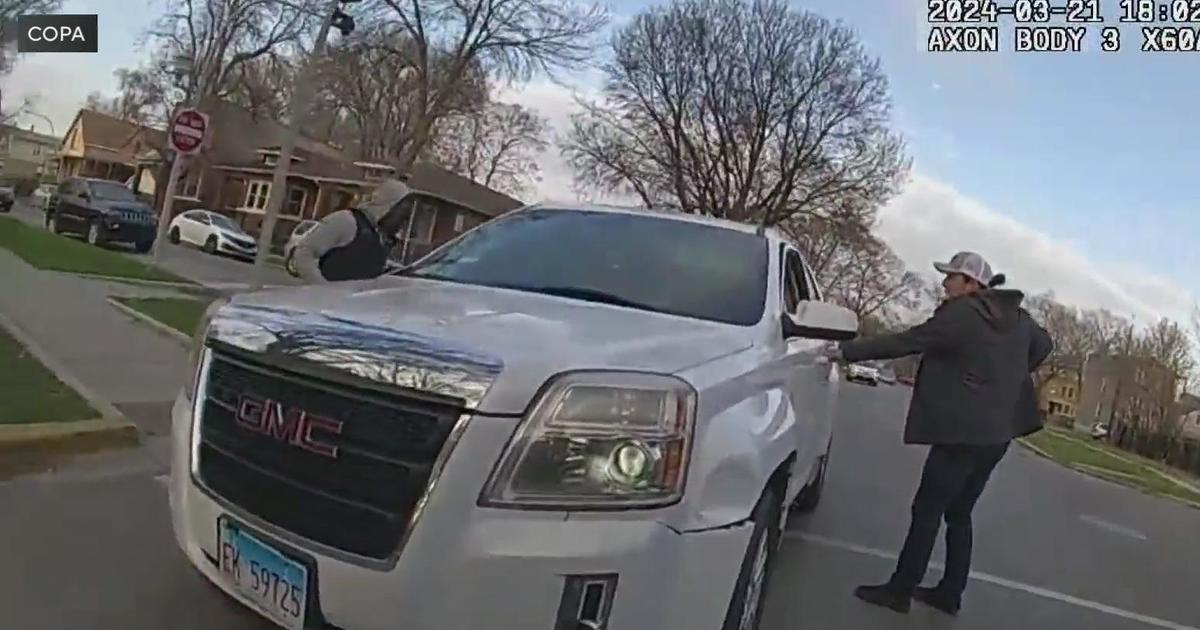Report Recommends Sweeping Changes To CPD Homicide Investigations To Boost 'Dismal' Murder Clearance Rate
by Todd Feurer, CBS Chicago web producer
CHICAGO (CBS) -- An independent police research group has recommended major changes to the way the Chicago Police Department investigates homicides, to help improve a clearance rate the city readily admits is "dismal," and lags far behind other major cities.
A 116-page report by the Police Executive Research Forum and the Bureau of Justice Assistance within the U.S. Department of Justice found many detectives did not even have their own desks or phones when CPD shifted from five detective areas to three in 2012.
"There wasn't much planning when that happened, so consequently you'd have detectives all pushed into three areas, and some of them didn't have desks, some of them didn't have computers. So it really wasn't thought out well," said PERF executive director Chuck Wexler.
Police Supt. Eddie Johnson said all detectives now have department-issued cell phones, and have been encouraged to give those numbers to witnesses and victims' families.
"This gives those who have witnessed or become a victim of crime a face, a name, and a phone number to call for updates," he said.
[scribd id=432738860 key=key-DwUwrS5S3kgMUnOwR4fR mode=scroll]
According to the report, another consequence of the shift from five areas to three was detectives sometimes had to travel up to an hour to reach a crime scene, leading to too much wasted time on cases, leading to fatigue.
The Chicago Police Department already has announced plans to reopen the two detective areas that were shut down in 2012, as part of Mayor Lori Lightfoot's budget plan for 2020.
Meantime, the PERF report also found the Chicago Police Department does not offer sufficient protection to witnesses who feel threatened, does not focus enough on non-fatal shootings, does not have a designated homicide unit, and must wait 6 to 12 months for DNA test results.
"That's unheard of. That's unacceptable," Wexler said, noting in some cities DNA analysis takes only 10 to 30 days.
Deputy Chief of Detectives Brendan Deenihan said CPD would work with the Cook County State's Attorney's office and the Illinois State Police Crime Lab to better prioritize DNA evidence, so that cases in which detectives have a known suspect get tested faster.
Deenihan said, while the department already prioritizes DNA tests in cases when a suspect is already in custody, it should also give priority to cases when a DNA test could lead to an arrest of a known suspect who isn't in custody yet.
CPD's clearance rate has been far below other major cities for years. Chief of Detectives Melissa Staples said it has improved "from a dismal 29 percent to 47 percent" over the last three years, but Mayor Lori Lightfoot said it still lags far behind other major cities.
"It doesn't make sense that we are at 46 percent when our peer cities are in the 70s," the mayor said.
Among the recommendations in the report, PERF called on CPD to reopen the two shuttered detective areas, create a designated homicide unit within each detective area, develop a homicide investigation manual for detectives to outline their specific duties, bolster its cold case unit, beef up staffing in the detective bureau, step up training for detectives, and improve focus on nonfatal shootings.
"Nonfatal shooting is basically a failed homicide, and a focus on nonfatal shootings can help prevent homicides. So that's a huge area in which we think there's a real opportunity," Wexler said.
Lightfoot said it's clear the department is not doing enough to solve homicides, and vowed CPD would continue its partnership with PERF to implement the changes recommended in the report.
"This report is proof that we need to put more detectives out into the districts, allowing them to establish more of a connection with beat officers, victims and their families, and the community at large; and we will do just that," Lightfoot said.
Johnson said some of the changes are already in the works, including reopening the two detective areas CPD closed in 2012, and promoting more officers to detectives. The superintendent said about 600 new detectives have joined the ranks in the last 2.5 years.
A new team led by a lieutenant in the department will oversee implementing the changes recommended in the PERF report, according to Deenihan.
Wexler praised Johnson for personally requesting the report, and said the problems with how CPD handles homicide investigations dates back long before Johnson took charge of the department in 2016.
"When you ask for a report, you're going to get back some hard medicine, and he knew that, but he said we're not going to improve unless we get a third party in here," Wexler said. "And the people who were giving us information were the detectives themselves."
The superintendent declined to speculate on why the department allowed so many things to go wrong with the way it handles homicide cases.
"This didn't happen overnight. This has been years in the making, but now we can't worry about that. What we have to worry about now is fixing it, and making us better," Johnson said.
Wexler said he was impressed with CPD's commitment to changing how it investigates homicides, noting PERF has met with resistance to recommended reforms in other police departments.
"A big part of this is changing the culture about how you do these things, and I think the department is committed to that. I think the department gets it. We got total communication and cooperation with this department. We don't get that with everyone," Wexler said. "These detectives want to do their job. These detectives want to solve homicides, but they can't do it without the right equipment and resources."



